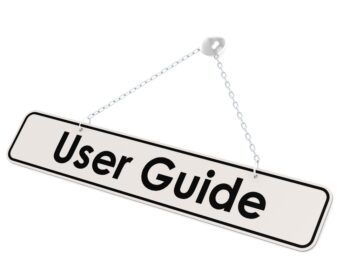
Members of the claims management team who fail to prepare for mediation will not see its benefits. Anyone seeking to promote efficiency and reduce workers’ compensation costs must take proactive action in order to make the most of a mediation session.
Effective Use of the Mediation Process
Alternative dispute resolution in workers’ compensation systems can be used even if it is not required or endorsed by a state industrial commission. The process starts when the employee and employer/insurer agree to use a neutral third party to help resolve their dispute. When agreeing to do so, it is important to invest time and effort in reaching a settlement. Terminating the mediation session at the first sign of tension is never helpful.
Click Link to Access Free PDF Download
“8 ‘Think Outside the Box’ Tactics to Settle Workers’ Comp Claims”
Preparing for medication is key. All interested stakeholders must take the following steps:
- Evaluate the claim and set realistic expectations for settlement. While issues such as “pain and suffering” are important to any injury-related case, this is something that does not add value to the underlying claim;
- All interested stakeholders must be present and willing to work hard toward settlement. This includes being physically present at the mediation settlement and willing to sometimes work through lunch or late into the day. Be prepared for downtime and keeping occupied and focused; and
- Include interested parties and settlement services in the mediation session. Effectively settling a workers’ compensation claim involves many complex issues and considerations. Leverage the following services to prior to and during mediation:
– Defense attorney: Attorneys must play an active role in managing the emotional nature of settlement negotiations, and are a key relationship to leverage early in the claim.
– Settlement Consultant: A settlement consultant can assist the parties to understand the different options available, help identify the true wants and needs of both sides, and provide a negotiation tool to help bridge the gap of negotiations and bring about a successful resolution to the case.
– Professional Administrator: A professional administration handles many of the administrative tasks on behalf of the injured worker once they’ve settled their Workers’ Compensation claim and can provide piece of mind to address many of the injured worker’s fears and concerns prior to settlement.
Be Prepared; Be Willing to Compromise
Preparing for mediation is key for all involved parties. Steps members of the claims management team must take include:
- Receiving an updated case analysis from your settlement team. Request that this be provided in advance so one can receive clarification, properly set reserves and provide adequate settlement authority;
- Communicate with defense counsel and settlement services well in advance of mediation and develop a strategy. Make sure a confidential mediation statement is also sent to the mediator in advance. This statement should outline the claims, defenses, and evaluation of the case. It may also be helpful to provide a statement as to how you see the issues being resolve; and
- Be realistic and willing to compromise. In a settlement via mediation, all parties are able to have a role in resolving a case and be heard. It is important that there be a willingness to find a happy medium – a “win” for everyone.
Effectively Working with the Mediator
It is important to work with your settlement team to select the right mediator. This is because each mediator has their own style.
The style of a mediator may also be important depending on the unique facts of a case. Some of these could include matters involving a pro se claimant, a claimant who is a recent immigrant (cultural sensitivity is an important consideration), someone who is older (or younger) or one who has had many prior workers’ compensation cases.
It is also important to be open and honest with a mediator. If there is information a party does not want to be disclosed to the other side, make sure you are clear when sharing this information. Never lie and do not be evasive.
Conclusions
Mediation is a great tool to use when settling workers’ compensation cases. In many instances, it provides for fast and effective resolution to reduce program costs. When using this tool, it is important to prepare for and be willing to compromise. It is also important to work with the mediator in an effective manner.

Author Michael Stack, CEO Amaxx LLC. He is an expert in workers’ compensation cost containment systems and helps employers reduce their workers’ comp costs by 20% to 50%. He works as a consultant to large and mid-market clients, is a co-author of Your Ultimate Guide To Mastering Workers Comp Costs, a comprehensive step-by-step manual of cost containment strategies based on hands-on field experience, and is founder & lead trainer of Amaxx Workers’ Comp Training Center.
Contact: mstack@reduceyourworkerscomp.com.
Workers’ Comp Roundup Blog: https://blog.reduceyourworkerscomp.com/
©2018 Amaxx LLC. All rights reserved under International Copyright Law.
Do not use this information without independent verification. All state laws vary. You should consult with your insurance broker, attorney, or qualified professional.


























